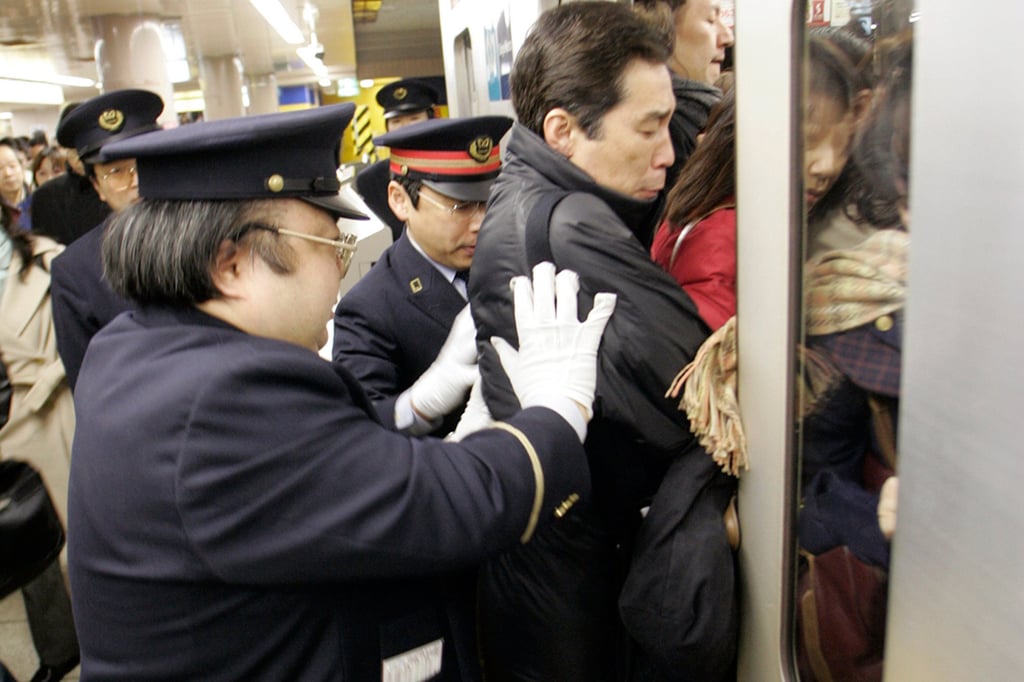A surge in reports about “touchless harassment” in Japan has reignited debate over women’s safety in public spaces and the shifting boundaries of what constitutes unacceptable behaviour.
Examples of touchless harassment cited by the media include getting uncomfortably close to someone to inhale the scent of their hair or perfume, blowing on them, staring, sending inappropriate messages or images via mass data-sharing functions, sitting too close on public transport and whispering comments that only the victim can hear.
A news feature dedicated to the issue, broadcast on Kansai Television on Friday, triggered hundreds of comments, many from women who said they had been victims of touchless harassment.
“I’m more nervous on the train than if I was in Europe or America,” wrote one user. Another added, “Molesters are ugly – more people need to make a fuss when they do something.”
Many comments suggested that train companies – long seen as popular hunting grounds for chikan, or molesters – introduce carriages that are strictly segregated by gender.

The issue gained national attention after a 48-year-old man was detained and questioned by police after he boarded a train in Kyoto, stood close to a high school girl and repeatedly sniffed her hair.








